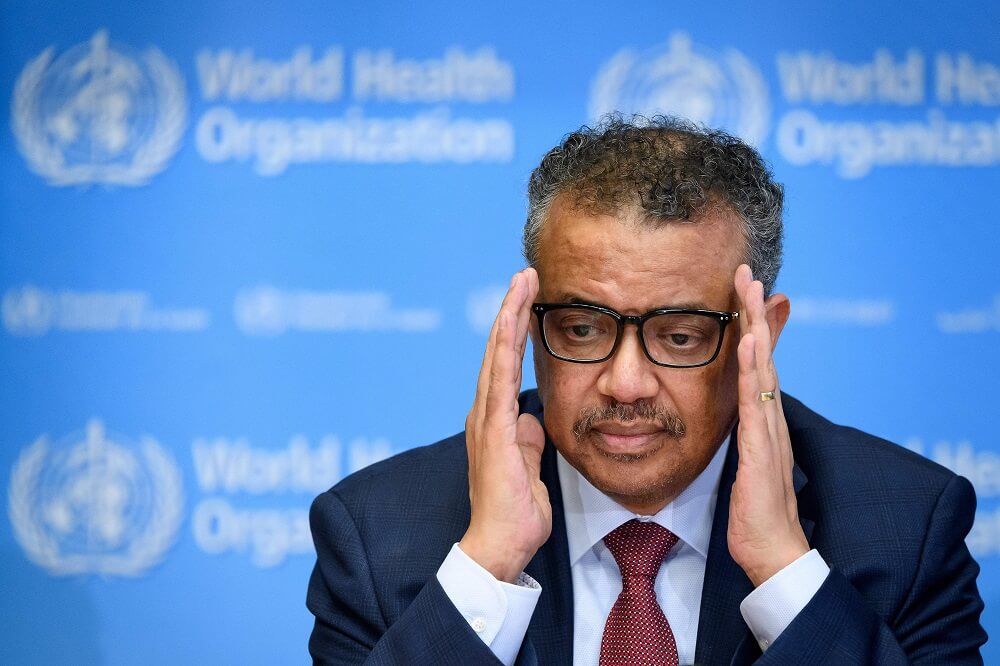Over A Billion People Suffer Mental Health Conditions — WHO

The World Health Organisation (WHO) says over one billion people worldwide live with mental health disorders.
According to the WHO, anxiety and depression are the most prevalent conditions affecting people of all ages and income levels.
WHO said the situation represents the second leading cause of long-term disability globally, contributing to loss of healthy life and driving up health-care costs for affected people and families while inflicting substantial economic losses on a global scale.
According to the global health leader, while many countries have bolstered their mental health policies and programmes, greater investment and action are needed globally to scale up services to protect and promote people’s mental health.
WHO, on its website on Tuesday, said these new findings are published in two reports – World Mental Health Today and Mental Health Atlas 2024.
It noted that the reports highlight some areas of progress while exposing significant gaps in addressing mental health conditions worldwide. The reports also serve as critical tools to inform national strategies and shape global dialogue ahead of the 2025 United Nations High-Level Meeting on noncommunicable diseases and promotion of mental health and well-being, taking place in New York on 25 September 2025.
The report also revealed that while the prevalence of mental health disorders can vary by sex, women are disproportionately impacted overall, adding that anxiety and depressive disorders are the most common types of mental health disorders among both men and women.
It further disclosed that suicide remains a devastating outcome, claiming an estimated 727,000 lives in 2021 alone, which is a leading cause of death among young people across all countries and socioeconomic contexts.
WHO Director-General Dr Tedros Adhanom Ghebreyesus said transforming mental health services is one of the most pressing public health challenges. Investing in mental health means investing in people, communities, and economies – an investment no country can afford to neglect.
He further stated that every government and every leader has a responsibility to act with urgency and to ensure that mental health care is treated not as a privilege but as a basic right for all.
WHO lamented that despite global efforts, progress in reducing suicide mortality is too low to meet the United Nations Sustainable Development Goal (SDG) of a one-third reduction in suicide rates by 2030. It added that on the current trajectory, only a 12 per cent reduction will be achieved by that deadline.
The report also stressed that the economic impact of mental health disorders is staggering, adding that while health-care costs are substantial, the indirect costs – particularly in lost productivity – are far greater.
It also noted that depression and anxiety alone cost the global economy an estimated US$ one trillion each year.
According to the global health leader, these findings underscore the urgent need for sustained investment, stronger prioritisation, and multi-sectoral collaboration to expand access to mental health care, reduce stigma, and tackle the root causes of mental health conditions.
It further noted that from the 2024 Atlas findings, since 2020, countries have been making significant strides in strengthening their mental health policies and planning; many have also updated their policies, adopted rights-based approaches, and enhanced preparedness for mental health and psychosocial support during health emergencies.
However, it pointed out that this momentum has not translated into legal reform. Only a few countries have adopted or enforced rights-based mental health legislation, and only 45 per cent of countries evaluated laws in full compliance with international human rights standards.
The report reveals a concerning stagnation in mental health investment; median government spending on mental health remains at just 2 per cent of total health budgets – unchanged since 2017.
It added that while high-income countries spend up to US$65 per person on mental health, low-income countries spend as little as US$0.04, stressing that the global median number of mental health workers stands at 13 per 100,000 people, with extreme shortages in low- and middle-income countries.
It also noted that reform and development of mental health services are progressing slowly, pointing out that fewer than 10 per cent of countries have fully transitioned to community-based care models, with most countries still in the early stages of transition.
It added that inpatient care continues to rely heavily on psychiatric hospitals, with nearly half of admissions occurring involuntarily and over 20 per cent lasting longer than a year.
The report, however, noted that integration of mental health into primary care is advancing, with 71 per cent of countries meeting at least three of five WHO criteria; however, data gaps remain, as only 22 countries provided sufficient data to estimate service coverage for psychosis.
While in low-income countries, fewer than 10 per cent of affected individuals receive care, compared to over 50 per cent in higher-income nations – highlighting an urgent need to expand access and strengthen service delivery.
WHO noted, however, that while there have been some encouraging developments, the latest data shows that countries remain far off track to achieve the targets set in WHO’s Comprehensive Mental Health Action Plan.
It further called on governments and global partners to urgently intensify efforts toward systemic transformation of mental health systems worldwide, including equitable financing of mental health services, legal and policy reform to uphold human rights, sustained investment in the mental health workforce, and expansion of community-based, person-centred care.
Over A Billion People Suffer Mental Health Conditions — WHO is first published on The Whistler Newspaper





